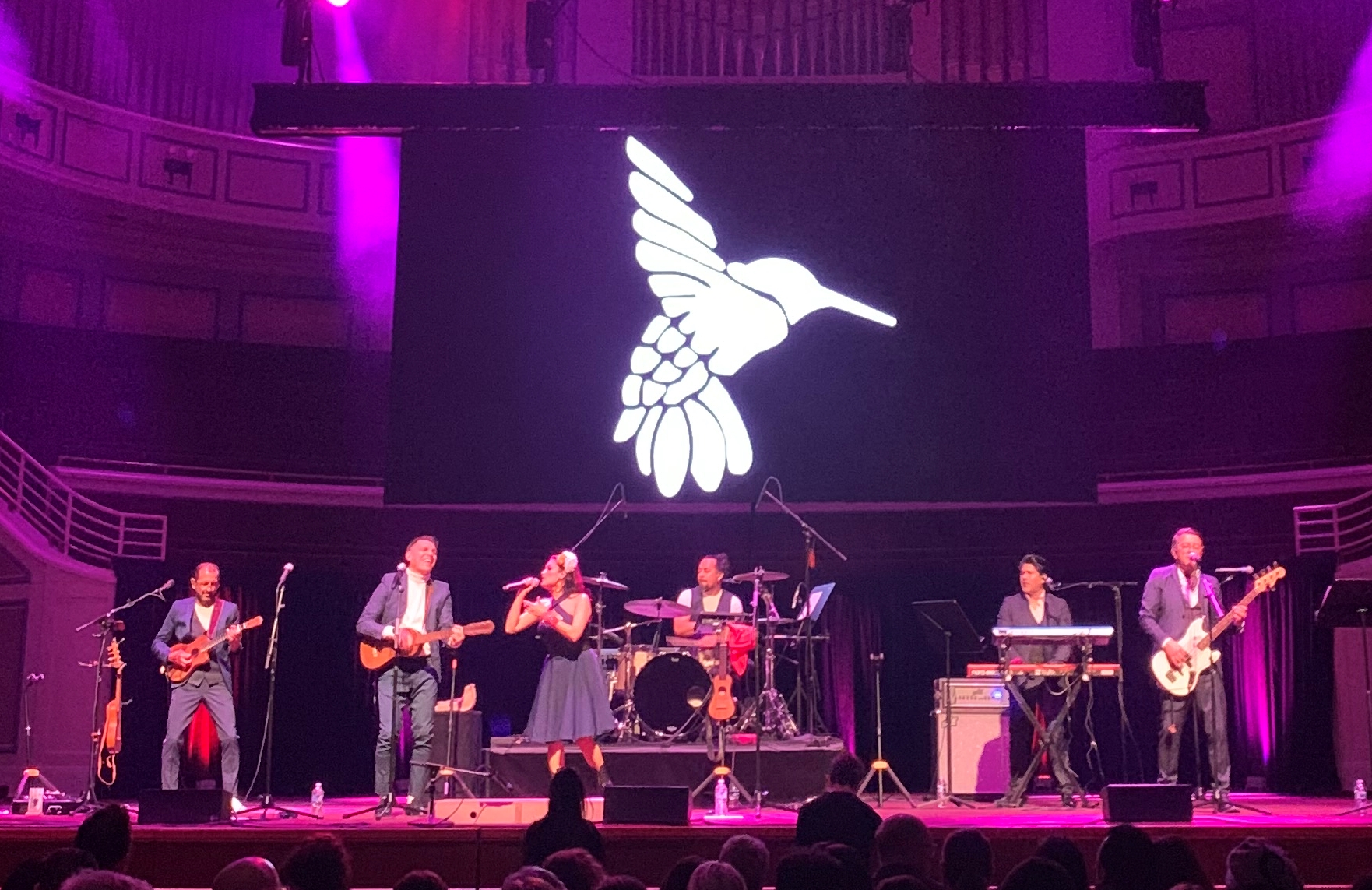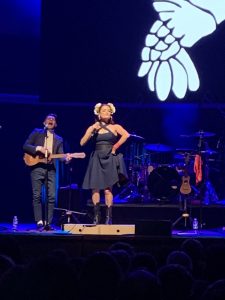
Las Cafeteras – Photo by Tom Alvarez
In all the years I have covered the Center for the Performing Arts since it opened in 2011, I have only witnessed a handful of Latino music concerts at the Palladium. Therefore, it was with singular delight, as a Hoosier with Mexican roots, that I experienced the distinctly creative East Los Angeles-based Las Cafeteras on Friday at the Carmel venue.
To honor women, the group founded in 2005 and formerly known as Los Cafeteros, feminized their name to Las Cafeteras (coffee makers). Known for its social activism, their songs have themes and references to the civil rights movement, United Farm Workers, DREAM Act, immigration reform and female homicides in Ciudad Juárez, a city in northern Mexico.
Performing in English and Spanglish, the high-energy group played a setlist that reflected a mix of cumbia, rock, punk, hip-hop, beat music and Afro-Mexican rhythms. Playing to a relatively small, but enthusiastic audience, the group transfixed the crowd, made up of more Latinos than I have ever seen gathered previously at a Palladium event.
The musicians played traditional instruments like the eight-string jarana, four-string requinto, quijada (donkey jawbone) and tarima (a wooden platform). The group comprises Denise Carlos on vocals, jarana primera and zapateado; Hector Flores on vocals and zapateado; Jorge Mijangos on requinto jarocho, vocals and jarana; Moises Baqueiro on bass; Jesus Gonzalez Ramirez on keyboard; and Jose Guadalupe Cruz Cano on drums.

L-R Hector Flores & Denise Carlos of Las Cafeteras – Photo by Tom Alvarez
Performing in front of their giant hummingbird logo projected on a large screen behind them, the group played a two-hour concert, with a 20-minute intermission. There was hardly a lull in the entire show. It was totally infectious, partly due to lead singers Carlos and Flores, who were dynamos. There have only been a few times when I have seen people dance in the aisles at the Palladium and this was one of them. With so many people singing along in Spanish, the joy and celebration in the hall were palpable.
Highlights of the concert, featuring music styled after that of Veracruz, Mexico, included “Luna Lovers,” a song about someone named Luna who falls in love in one night, “El Feo Más Bello” (The Most Beautiful Ugly), a tribute to people who are not physically attractive, but are beautiful inside, “El Zapateado,” a form of tap dancing on a wooden platform that gets progressively faster, “Café Con Pan” a song about coffee with bread, a breakfast staple and tradition, “La Sirena,” a song about a man who falls in love with a mermaid, and “Oaxaca Love Song No.2” that pays tribute to a city in Southern Mexico, and “La Bamba Rebelde”, a remake of the traditional Mexican song “La Bamba” that denotes the band’s Chicano pride.
Taking pride in constructing their music as a tool for creating positive change and inspiring others, “Las Cafeteras,” with its socially conscious message, was a welcome addition to the Center for the Performing Arts’ programming. I hope the venue will offer more diverse programming in the future to reflect the community it serves. With the continuing influx of Latinos to Central Indiana, who are profoundly changing the very social fabric of our communities, the Center, through its mission, can only help to enrich the arts and culture of our state.





